
Yendi: The Heartbeat of Ghana's Northern Region
Yendi is a vibrant town in the Northern Region of Ghana, rich in history and culture. It is known as the traditional capital of the Dagbon Kingdom, where the revered Yaa Naa, the king of Dagbon, resides. The town offers visitors a glimpse into the traditional life of the Dagomba people, with its colorful festivals, intricate beadwork, and traditional dances that are both mesmerizing and educational. A trip to Yendi is incomplete without visiting the Gbewaa Palace. This historical palace is not only the residence of the Yaa Naa but also a symbol of the Dagbon Kingdom's enduring legacy. The architecture of the palace reflects the traditional building styles of the Dagomba people and provides a unique insight into their way of life. Nature enthusiasts will find the surrounding landscapes of Yendi captivating. The town is surrounded by lush greenery and scenic views that are perfect for hiking and bird watching. The serene atmosphere of the countryside offers a peaceful retreat from the bustling city life, making it an ideal destination for relaxation and exploration. Yendi is also a hub for local markets where visitors can purchase handmade crafts, traditional clothing, and local delicacies. The warm and welcoming nature of the locals ensures that every visit to Yendi is memorable, filled with rich experiences and lasting impressions.
Local tips in Yendi
- Visit during the Damba Festival to experience vibrant traditional ceremonies.
- Hire a local guide to explore the Gbewaa Palace and learn about the Dagbon Kingdom's history.
- Bring comfortable walking shoes for exploring the scenic landscapes and local markets.
- Sample local dishes like Tuo Zaafi and Waakye at the town's eateries for an authentic culinary experience.
- Carry a camera to capture the colorful festivals, intricate beadwork, and stunning scenery.
Yendi: The Heartbeat of Ghana's Northern Region
Yendi is a vibrant town in the Northern Region of Ghana, rich in history and culture. It is known as the traditional capital of the Dagbon Kingdom, where the revered Yaa Naa, the king of Dagbon, resides. The town offers visitors a glimpse into the traditional life of the Dagomba people, with its colorful festivals, intricate beadwork, and traditional dances that are both mesmerizing and educational. A trip to Yendi is incomplete without visiting the Gbewaa Palace. This historical palace is not only the residence of the Yaa Naa but also a symbol of the Dagbon Kingdom's enduring legacy. The architecture of the palace reflects the traditional building styles of the Dagomba people and provides a unique insight into their way of life. Nature enthusiasts will find the surrounding landscapes of Yendi captivating. The town is surrounded by lush greenery and scenic views that are perfect for hiking and bird watching. The serene atmosphere of the countryside offers a peaceful retreat from the bustling city life, making it an ideal destination for relaxation and exploration. Yendi is also a hub for local markets where visitors can purchase handmade crafts, traditional clothing, and local delicacies. The warm and welcoming nature of the locals ensures that every visit to Yendi is memorable, filled with rich experiences and lasting impressions.
When is the best time to go to Yendi?
Unmissable attractions to see
Kakum National Park
Experience the breathtaking beauty and diverse wildlife of Kakum National Park, a premier destination for nature lovers in Ghana.
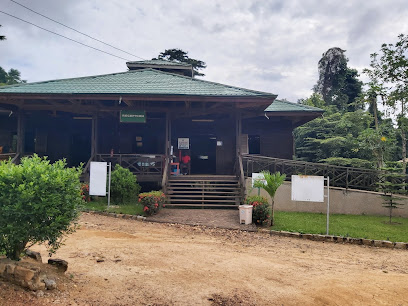
Mole National Park
Explore the breathtaking landscapes and diverse wildlife of Mole National Park, Ghana's largest national park, a true gem for nature lovers and adventurers.
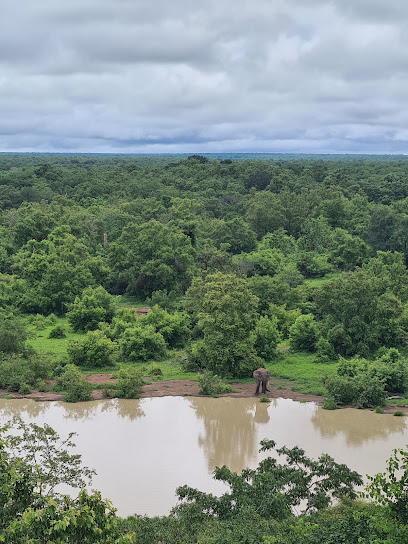
Kaladan Park
Experience the natural beauty and vibrant atmosphere of Kaladan Park in Tamale – a perfect getaway for relaxation and local culture.
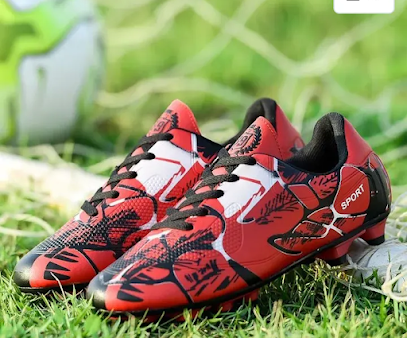
Fort William, Ghana
Discover the historical significance and breathtaking views at Fort William, a key landmark in Ghana's coastal heritage.
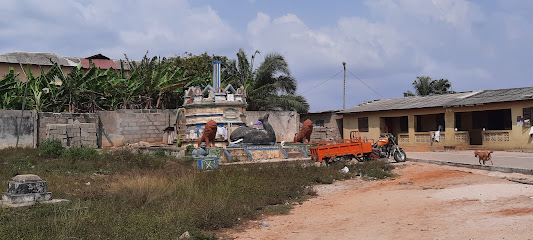
Salaga Slave Market
Discover the profound history of the Salaga Slave Market, a key site in Ghana's narrative of the transatlantic slave trade.
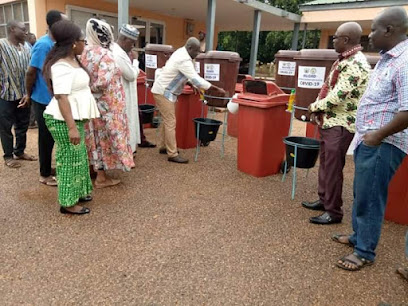
International Stingless Bee Centre
Explore the ecological marvels of the International Stingless Bee Centre in Odumase Abrafo, a unique tourist attraction dedicated to stingless bees.
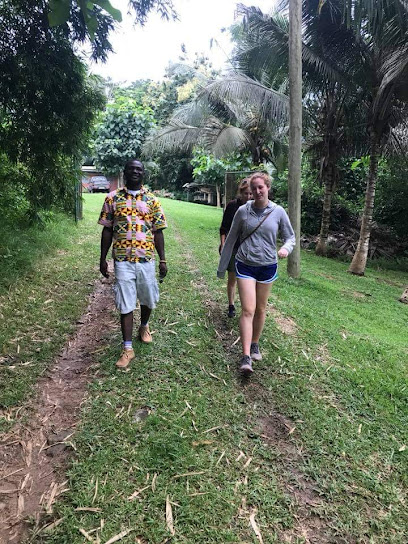
Royal Palace of King of Mamprugu ( Nayiri Palace)
Explore the rich heritage of the Mamprusi people at the Royal Palace of the King of Mamprugu in Nalerigu, a cultural gem in Ghana.
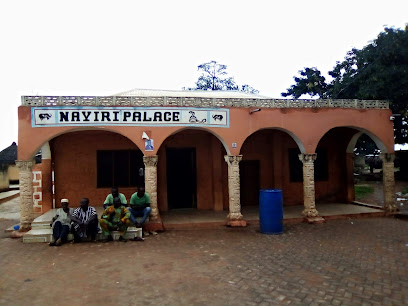
Yendi Township Forest Reserve
Explore the lush landscapes and diverse wildlife of Yendi Township Forest Reserve, a serene destination for nature lovers and adventure seekers in Ghana.
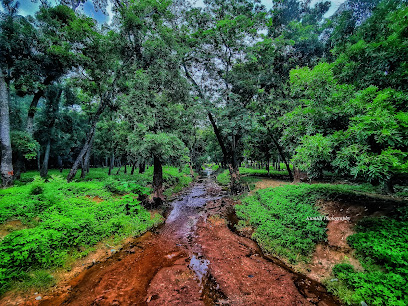
Salaga Community Astro-Turf Park
Discover the lively Salaga Community Astro-Turf Park, a perfect blend of sports, relaxation, and local culture in the heart of Salaga.
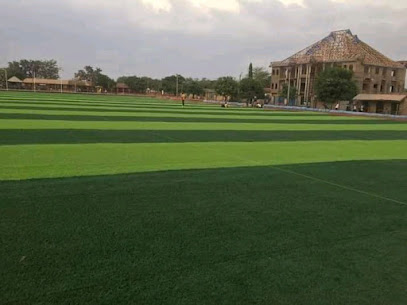
Naa Gbewa palace
Explore the Naa Gbewa Palace in Yendi, a stunning landmark showcasing the rich cultural heritage and traditions of the Dagbon Kingdom in Ghana.
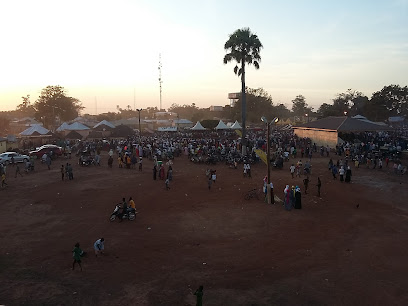
Gambaga Escarpment
Experience the breathtaking beauty and cultural richness of the Gambaga Escarpment in Northeast Ghana, a must-visit destination for nature lovers and adventurers.
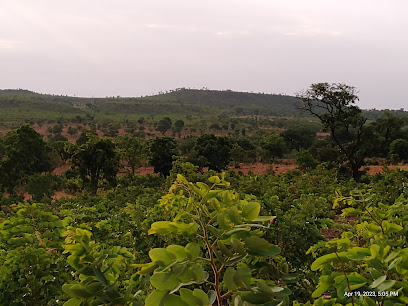
Tounga Frontière Togo-Ghana
Experience the cultural fusion and breathtaking landscapes at Tounga Frontière, the captivating gateway between Togo and Ghana.
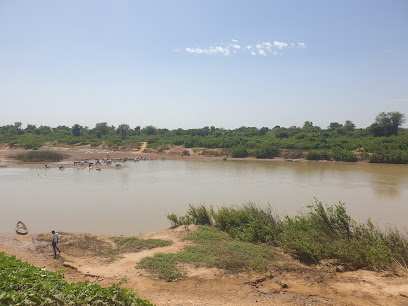
Yendi German Cemetery
Explore the Yendi German Cemetery, a serene historical site reflecting the cultural ties between Ghana and Germany.
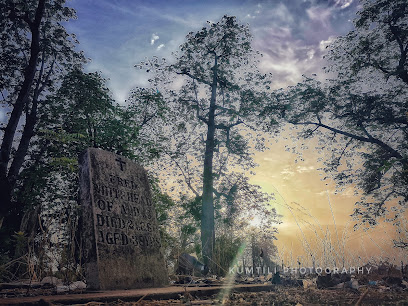
Gbangu Spring
Explore the serene beauty of Gbangu Spring, a peaceful park in Bongbini offering lush landscapes and a perfect escape into nature.
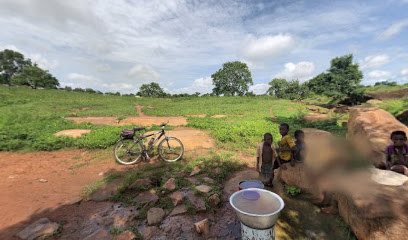
Animals reserve (Goats )
Explore the enchanting Animals Reserve in Sabari, home to friendly goats and a serene environment perfect for family fun and animal lovers.

Essential places to dine
7As restuarant
Experience authentic Ghanaian cuisine at 7A's Restaurant in Yendi – where flavor meets tradition in every dish.
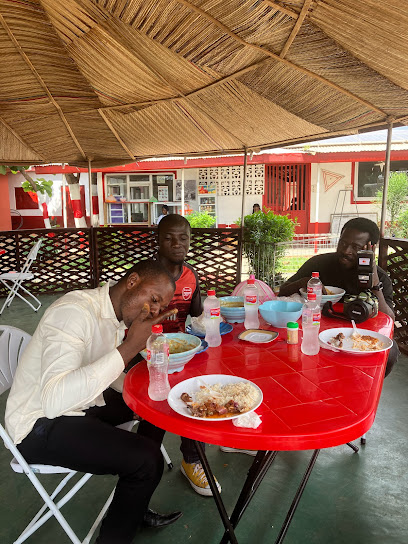
Hajia falila food complex
Experience authentic Ghanaian cuisine at Hajia Falila Food Complex in Yendi – a must-visit for food lovers exploring Northern Ghana.
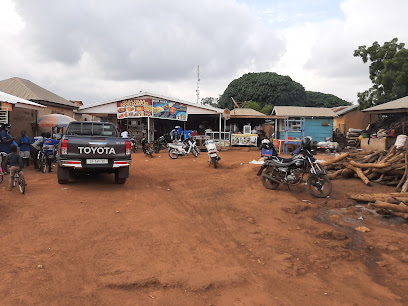
ishaa allah special food (Hajia Rafia)
Experience authentic Ghanaian flavors at Ishaa Allah Special Food in Yendi - a culinary journey through local cuisine.

Dakaa Royal Kitchen
Discover authentic Ghanaian flavors at Dakaa Royal Kitchen in Yendi - where tradition meets taste.
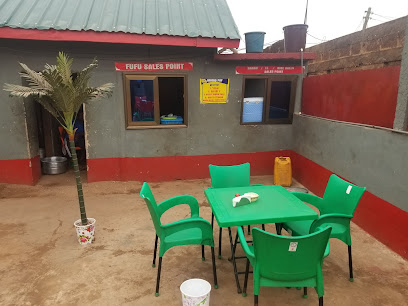
Falilatu food complex
Experience authentic Ghanaian cuisine at Falilatu Food Complex in Yendi - where tradition meets flavor in a lively atmosphere.
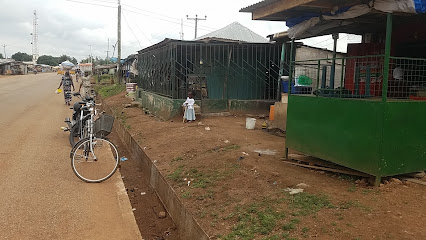
Awula Special Food
Discover authentic Ghanaian cuisine at Awula Special Food in Yendi - where every dish tells a story.

Taali cold store yendi
Discover fresh meats and seafood at Taali Cold Store in Yendi – a butcher shop showcasing local flavors and culinary traditions.
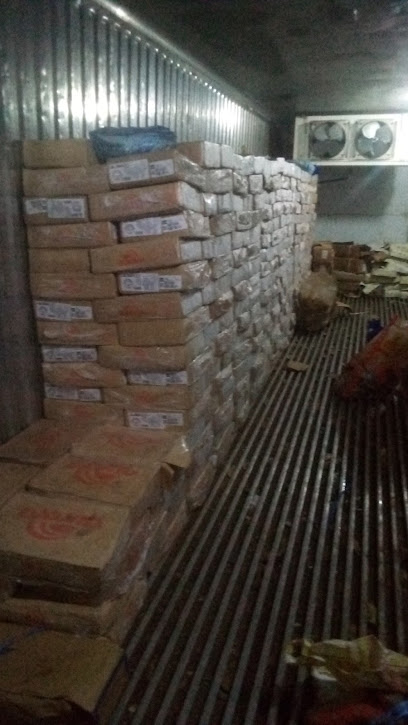
Cronys Fast Food Yendi
Experience the best of fast food in Yendi at Cronys - where flavor meets convenience amidst Ghana's vibrant culture.
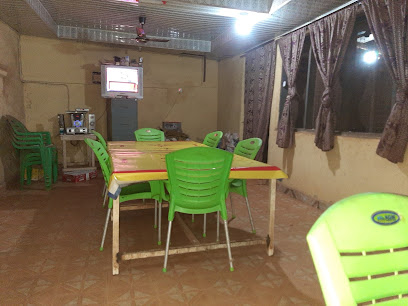
Markets, malls and hidden boutiques
N.I Ventures
Discover the vibrant culture of Yendi at N.I Ventures, your one-stop general store for local crafts and essentials.
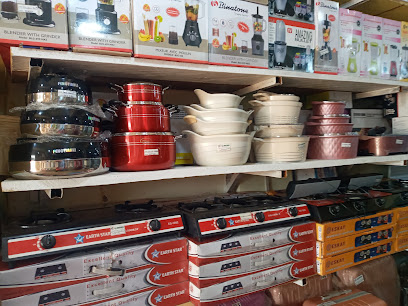
Yendi Old Market.
Experience the vibrant culture and local flavors at Yendi Old Market, a must-visit destination for any traveler in Ghana.
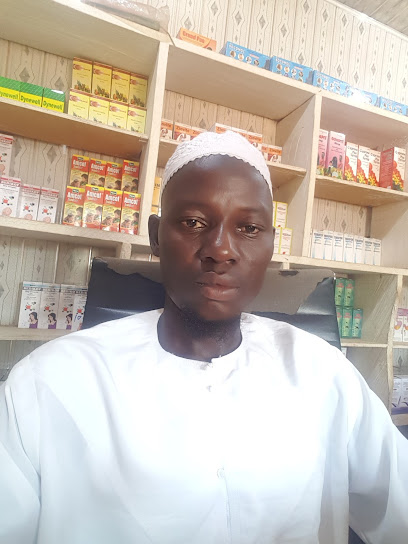
ABDUL LATIF KPALUA TRADING ENTERPRISE
Discover the vibrant flavors of Yendi at Abdul Latif Kpalua Trading Enterprise - your local grocery store for authentic Ghanaian products.
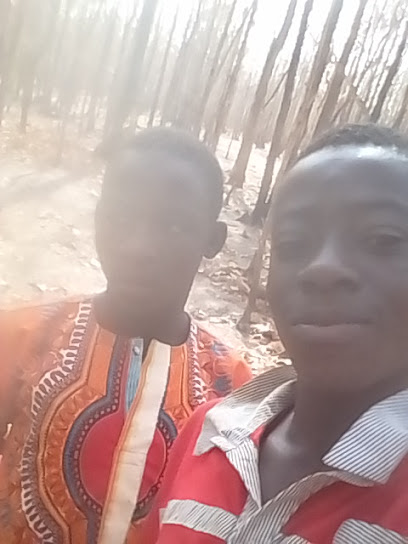
Tibigangso Kumfong Yendi
Explore the vibrant fashion scene at Tibigangso Kumfong Yendi, featuring unique local styles and traditional garments in the heart of Yendi.
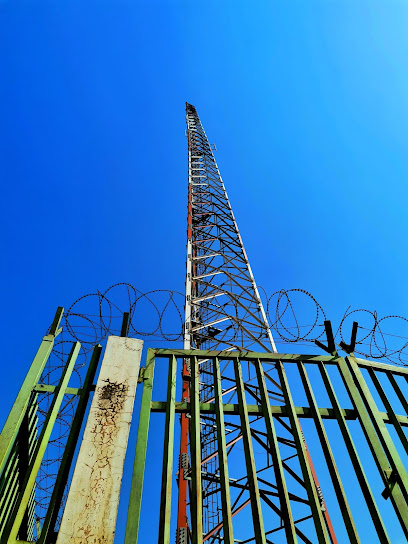
Yurilim Ventures
Discover Yurilim Ventures in Yendi: your go-to stationery store for quality supplies, local crafts, and artistic inspiration.
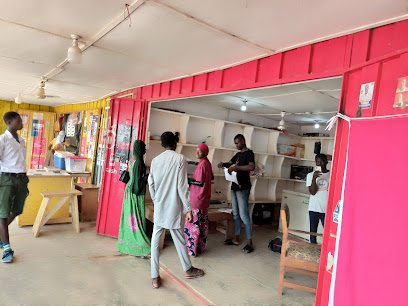
Extra Quality
Explore local flavors at Extra Quality, Yendi's premier grocery store offering fresh produce and Ghanaian delicacies.
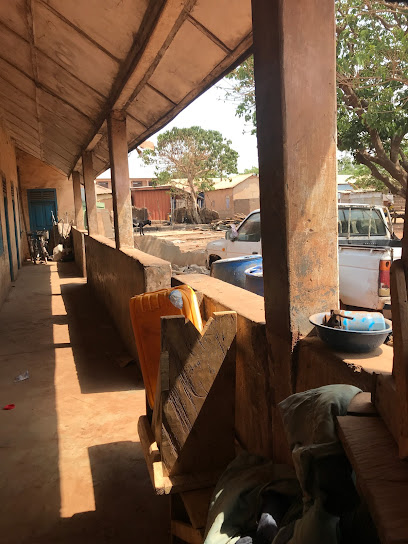
AMINU BALA ENTERPRISE
Discover the charm of Aminu Bala Enterprise in Yendi, your one-stop general store for local goods and essentials.

Agbaa Enterprise
Discover a diverse range of local and international products at Agbaa Enterprise, the premier supermarket in Yendi, Ghana.
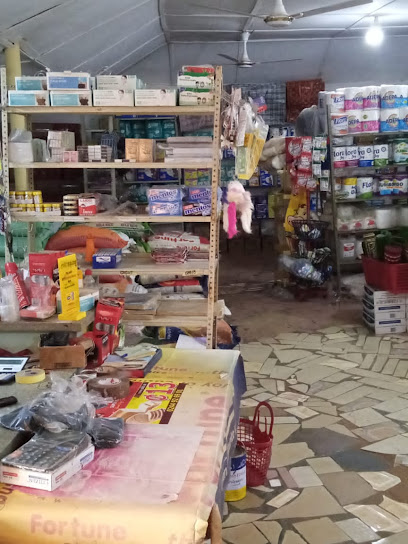
CAMNA ENTERPRISE
Explore Camna Enterprise in Yendi for a comprehensive range of high-quality stationery supplies that inspire creativity and productivity.
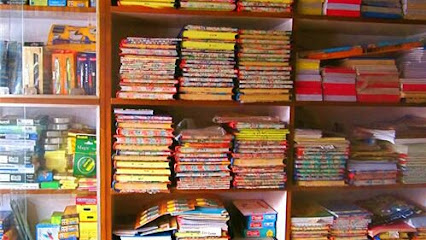
SINCE1997 BOUTIQUE
Discover unique fashion treasures at Since1997 Boutique in Yendi, where local culture meets contemporary style.
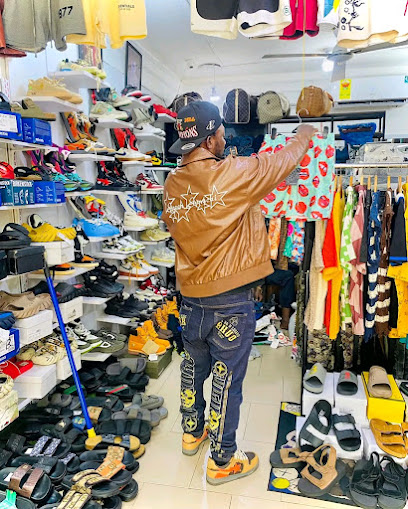
Doobia Fashion Designer
Discover the vibrant essence of Ghanaian fashion at Doobia Fashion Designer, a must-visit clothing store in Yendi.
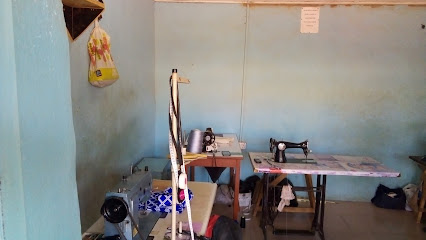
Moyak Electricals
Explore the latest in electronics at Moyak Electricals in Yendi, your trusted source for quality gadgets and appliances.
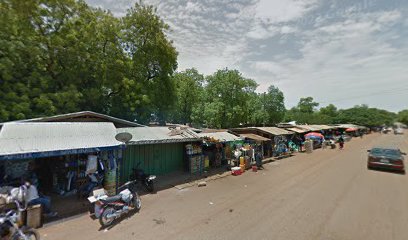
Pariche Naa yili Baanjida
Visit Pariche Naa yili Baanjida in Yendi, Ghana, for all your toiletries needs and experience the warmth of local culture.
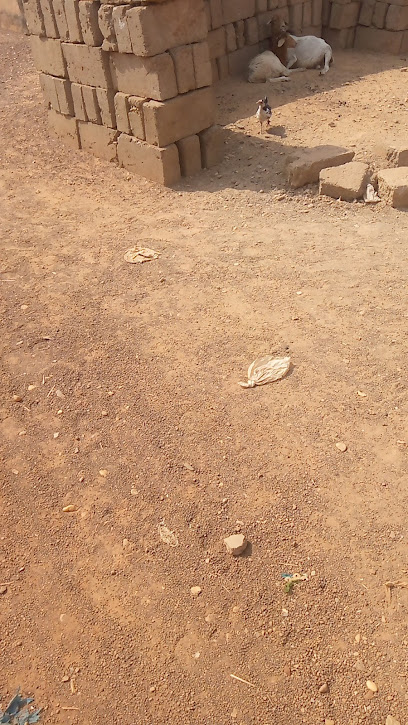
Zooya Ventures
Immerse yourself in the vibrant culture of Yendi at Zooya Ventures, a general store that offers local crafts and traditional snacks.

AMB BUSINESS CENTRE
Discover local culture and essential goods at AMB Business Centre in Yendi, Ghana - a charming general store for every traveler.

Essential bars & hidden hideouts
7As restuarant
Experience authentic Ghanaian cuisine in a welcoming atmosphere at Yendi's 7As Restaurant, where flavor and hospitality meet.
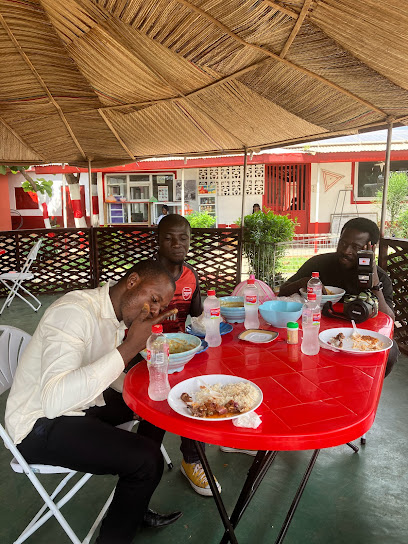
Hajia falila food complex
Discover the authentic taste of Ghanaian cuisine at Hajia Falila Food Complex in Yendi, where every dish tells a delicious story.
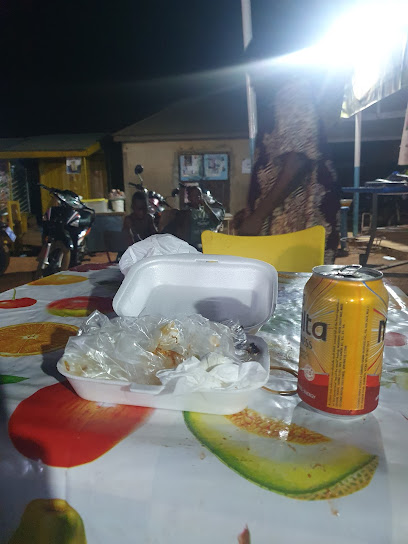
Pub 4
Discover the vibrant nightlife of Salaga at Pub 4, where great drinks and local culture come together in a welcoming atmosphere.
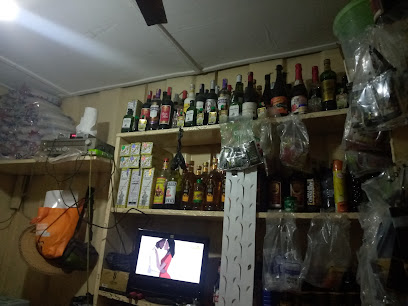
Gentleman Sport
Experience the vibrant nightlife at Gentleman Sport, Yendi's premier bar, offering a lively atmosphere and a variety of drinks for all tastes.
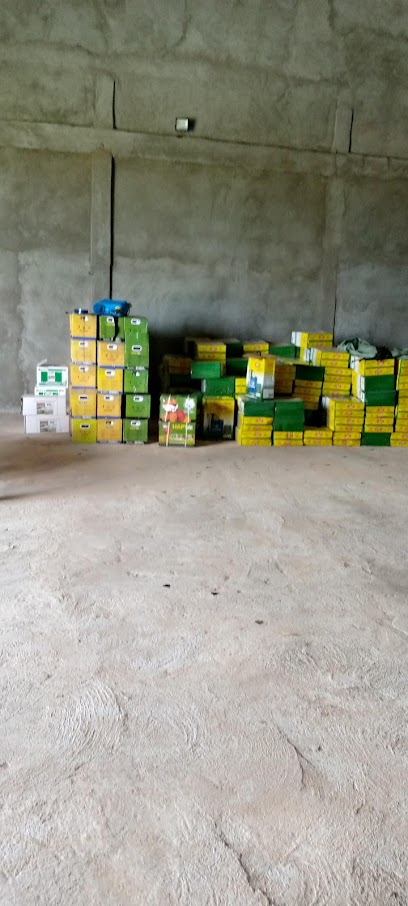
ishaa allah special food (Hajia Rafia)
Experience the rich flavors of Ghana at Ishaa Allah Special Food in Yendi, where authentic cuisine meets warm hospitality.

CHILL BAR, CHEREPONI
Experience the vibrant atmosphere and refreshing drinks at Chill Bar, Chereponi's go-to spot for relaxation and socializing.
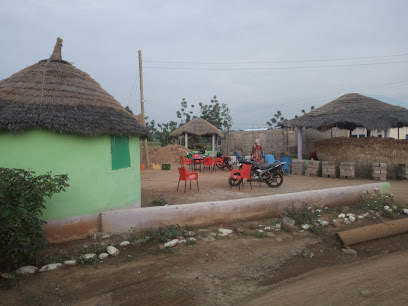
Hilltop Spot
Discover the tranquil beauty and vibrant atmosphere of Hilltop Spot, the perfect bar retreat in Chereponi, Ghana, with stunning views and local flavors.
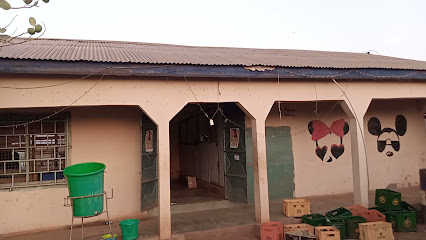
Falilatu food complex
Experience the vibrant flavors of Ghana at Falilatu Food Complex in Yendi, where local cuisine comes to life in a welcoming atmosphere.
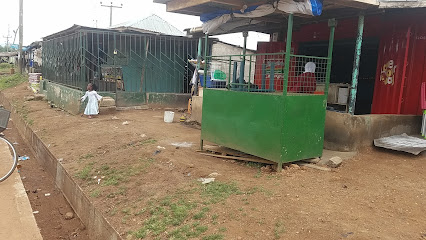
Dakaa Royal Kitchen
Experience authentic Ghanaian cuisine at Dakaa Royal Kitchen in Yendi, where tradition meets flavor in a vibrant dining atmosphere.
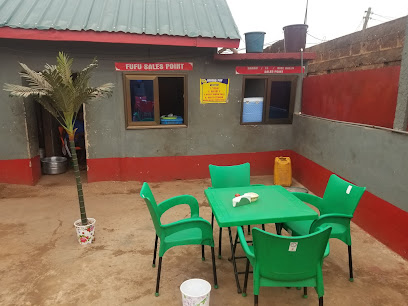
Fire View Restaurant
Experience the vibrant atmosphere and breathtaking views at Fire View Restaurant in Yendi, the perfect destination for relaxation and local cuisine.
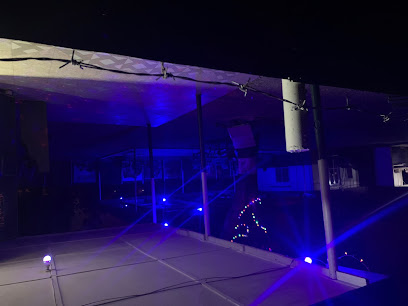
Point 8 Drinking Bar
Discover the vibrant nightlife of Yendi at Point 8 Drinking Bar, where refreshing drinks and a welcoming atmosphere await.
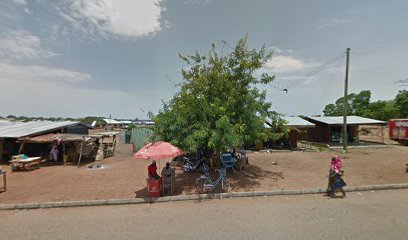
Awula Special Food
Experience authentic Ghanaian cuisine at Awula Special Food in Yendi, where vibrant flavors and welcoming hospitality await every visitor.

Dufies Chop Bar
Discover the essence of Ghanaian cuisine at Dufies Chop Bar in Yendi, where authentic flavors and local culture come together in a vibrant setting.
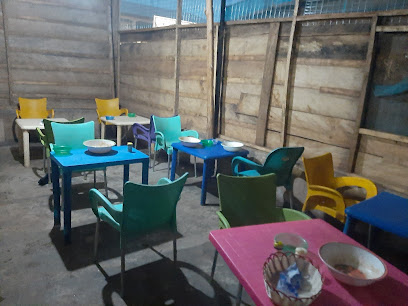
Prosper Bar Yendi
Experience the local charm and relaxation at Prosper Bar in Yendi, the perfect spot for unwinding with friends and enjoying the vibrant atmosphere.

Local Phrases about Yendi
-
- HelloŊma
[ŋma] - GoodbyeKpele
[kpele] - YesEe
[ee] - NoAyi
[ayi] - Please/You're welcomeNaa
[naa] - Thank youNyɛ
[nyɛ] - Excuse me/SorryBeeda
[beeda] - How are you?Maaya a yaa?
[maaya a yaa] - Fine. And you?Aaa. Na yaa?
[aaa. na yaa] - Do you speak English?Yaa nya Inglish?
[yaa nya inglish] - I don't understandAya bi yaa
[aya bi yaa]
- HelloŊma
-
- I'd like to see the menu, pleaseNa lɛ ka yɛ diɛm, nɛlɛ
[na le ka ye diem, nelɛ] - I don't eat meatAya bi le nyɛ bʋkɛ
[aya bi le nye bʋkɛ] - Cheers!Awoɔ!
[awoɔ] - I would like to pay, pleaseNa lɛ ka yɛ yɛlɛ, nɛlɛ
[na le ka ye yele, nelɛ]
- I'd like to see the menu, pleaseNa lɛ ka yɛ diɛm, nɛlɛ
-
- Help!Abaa!
[abaa] - Go away!Baa lɛɛ!
[baa lee] - Call the Police!Yɛlɛ yɛlɛ Pɔlɔs!
[yele yele pɔlɔs] - Call a doctor!Yɛlɛ maa docta!
[yele maa docta] - I'm lostAya bi lɔɔ
[aya bi loo] - I'm illAya bi lɛŋ
[aya bi leŋ]
- Help!Abaa!
-
- I'd like to buy...Na lɛ ka yɛ dɔ...
[na le ka ye do...] - I'm just lookingAya bi le ka yɛ lɔɔ
[aya bi le ka ye loo] - How much is it?Yɛ yɛlɛ bɛɛ?
[ye yele beɛ] - That's too expensiveNaa, bɛɛ nɔŋŋ
[naa, beɛ nɔŋŋ] - Can you lower the price?Yɛ tɔŋŋ yɛlɛ bɛɛ?
[ye tɔŋŋ yele beɛ]
- I'd like to buy...Na lɛ ka yɛ dɔ...
-
- What time is it?Yɛɛ yaa sɔɔ?
[yeɛ yaa so] - It's one o'clockSɔɔ laa
[so laa] - Half past (10)Yɛ yɔɔ laa (10)
[ye yo laa] - MorningDaalaa
[daalaa] - AfternoonYalaa
[yalaa] - EveningNalaa
[nalaa] - YesterdayZɔɔ
[zo] - TodayLaa
[laa] - TomorrowNaa
[naa] - 1Bi
[bi] - 2Ba
[ba] - 3Ta
[ta] - 4Na
[na] - 5Naa
[naa] - 6Nya
[nya] - 7Naa
[naa] - 8Nya ba
[nya ba] - 9Nya ta
[nya ta] - 10Luu
[luu]
- What time is it?Yɛɛ yaa sɔɔ?
-
- Where's a/the...?Yɛɛ nya...?
[yeɛ nya] - What's the address?Yɛɛ nya nyɛŋmɛlɛ?
[yeɛ nya nyeŋmɛlɛ] - Can you show me (on the map)?Yɛ tɔŋŋ ka yɛ lɛɛ (ka sheɛ)?
[ye tɔŋŋ ka ye lee (ka shee)] - When's the next (bus)?Yɛɛ nya yɛlɛ (trosi)?
[yeɛ nya yele (trosi)] - A ticket (to ....)Yɛ yɛlɛ (ka ....)
[ye yele (ka ....)]
- Where's a/the...?Yɛɛ nya...?
History of Yendi
-
Yendi, located in the Northern Region of Ghana, has a rich history that dates back to the 16th century. It was founded by the Dagombas under the leadership of their king, Naa Gbewaa, who is celebrated as a legendary ancestor. Yendi became the capital of the Dagbon Kingdom, which was one of the prominent kingdoms in northern Ghana.
-
One of the most significant historical events in Yendi is the Battle of Adibo, which took place in 1896. This battle was between the British colonial forces and the Dagombas. The British sought to expand their influence in the region, but the Dagombas fiercely resisted. Although the Dagombas were eventually defeated, the battle is remembered for the bravery and resilience of the Dagomba warriors.
-
Yendi played a crucial role during the trans-Saharan slave trade era. The town was a significant trading post where enslaved individuals were brought from various parts of the region before being transported to other destinations. The remnants of slave routes and trading posts can still be traced, serving as a somber reminder of this dark chapter in history.
-
Yendi has also been the center of internal conflicts, particularly the chieftaincy dispute between the Abudu and Andani royal families. This conflict, rooted in succession issues, has led to several violent clashes over the years. One of the most notable incidents occurred in 2002 when the Ya-Na Yakubu Andani II was killed, leading to heightened tensions and interventions by the Ghanaian government.
-
Yendi is renowned for its rich cultural heritage, particularly the annual Damba Festival. This festival, celebrated by the people of Dagbon, is held to commemorate the birth and naming of the Prophet Muhammad. It includes traditional drumming, dancing, and horse riding, showcasing the vibrant culture and traditions of the Dagomba people. The town also boasts of traditional crafts, such as weaving and blacksmithing, which have been passed down through generations.
-
Yendi is home to several architectural landmarks that reflect its historical and cultural significance. The Gbewaa Palace, the residence of the Ya-Na (king), is a notable structure that stands as a symbol of Dagbon's royal heritage. Additionally, the town features traditional Dagomba compounds, characterized by their unique round huts and thatched roofs, which offer a glimpse into the traditional lifestyle of the Dagomba people.
Yendi Essentials
-
Yendi is located in the Northern Region of Ghana. The nearest major airport is Tamale Airport, approximately 100 kilometers away. From Tamale, you can take a bus, taxi, or hire a private car to Yendi. The journey typically takes around 2 to 3 hours by road. There are also regular bus services from Accra, Kumasi, and other major cities to Yendi, though these journeys may take longer.
-
Yendi is a small town, and many attractions are within walking distance. For longer distances, local taxis and motorbikes (okadas) are readily available and relatively inexpensive. Public buses and minibuses (trotros) operate within the town and connect to nearby villages. Renting a car can also be a convenient option for exploring the surrounding areas at your own pace.
-
The official currency in Ghana is the Ghanaian Cedi (GHS). Credit cards are accepted in some hotels, restaurants, and shops, but it is advisable to carry cash, especially in smaller establishments and rural areas. ATMs are available in Yendi, but it is wise to withdraw sufficient cash in larger cities before traveling to ensure you have enough funds.
-
Yendi is generally a safe destination for tourists. However, it is advisable to take standard precautions. Avoid walking alone at night in unfamiliar areas and keep an eye on your belongings in crowded places. While Yendi does not have specific high-crime areas targeting tourists, it is always best to stay vigilant and aware of your surroundings.
-
In case of emergency, dial 191 for police assistance or 193 for medical emergencies. The local police station and medical facilities are available in Yendi. It is recommended to have travel insurance that covers medical emergencies. For minor health issues, there are pharmacies in the town where you can purchase over-the-counter medications.
-
Fashion: Do dress modestly, especially when visiting religious sites or rural areas. Avoid wearing revealing clothing. Religion: Do respect local customs and traditions. Always show respect when visiting mosques and other religious sites. Public Transport: Do be respectful and give up your seat to elderly passengers. Don't eat or drink on public transport. Greetings: Do greet people with a handshake. Using the right hand is considered polite. Eating & Drinking: Do try local delicacies and accept food offerings graciously. Don't refuse hospitality, as it is considered impolite.
-
To experience Yendi like a local, visit the local markets where you can buy fresh produce and traditional Ghanaian goods. Engage with locals, as they are often friendly and willing to share stories about the town's history and culture. Don't miss visiting the Yendi Chief's Palace to learn about the local chieftaincy system and traditional governance. For a unique experience, attend a local festival to witness traditional dances, music, and ceremonies.
Nearby Cities to Yendi
-
Things To Do in Atakpamé
-
Things To Do in Wa
-
Things To Do in Kpalimé
-
Things To Do in Notse
-
Things To Do in Ho
-
Things To Do in Sunyani
-
Things To Do in Kumasi
-
Things To Do in Ouagadougou
-
Things To Do in Lokossa
-
Things To Do in Koforidua
-
Things To Do in Ziniaré
-
Things To Do in Lomé
-
Things To Do in Aneho
-
Things To Do in Koudougou
-
Things To Do in Ouidah





